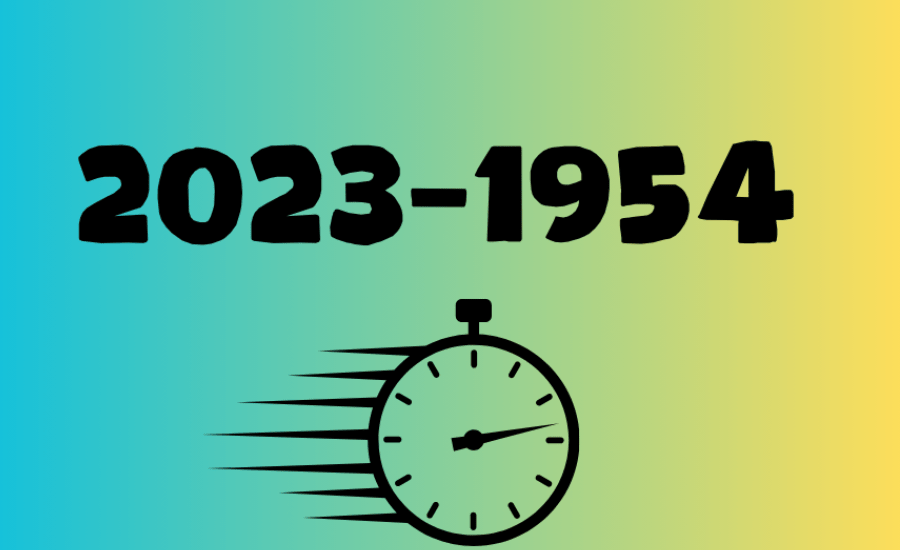Business
Don’t Miss Out on Your PPI Refund: Exploring Late Claims and Their Validity

Are you one of the millions who may be missing out on a well-deserved PPI refund? Don’t let your chance slip away! Whether you’ve never made a claim or thought it was too late, we’re here to debunk the myths and uncover the truth about late claims. Join us as we dive into the depths of PPI refunds, exploring their validity even after all these years. It’s time to seize what’s rightfully yours and embark on an enlightening journey towards financial justice – because in this blog post, missing out is not an option!
Introduction to PPI Refunds and the Deadline
Payment Protection Insurance (PPI) refunds have been making headlines for years, with millions of people in the UK being mis-sold this type of insurance. PPI was originally designed to cover loan or credit card repayments in case of illness, injury, or job loss. However, many banks and lenders aggressively sold PPI policies without properly informing consumers about its exclusions and terms.
After a series of investigations and legal battles, it was found that this widespread mis-selling had caused millions of people to pay for something they didn’t need or wouldn’t be able to use. As a result, the Financial Conduct Authority (FCA) introduced a deadline for making PPI claims – August 29th, 2019. This means that if you have not made your claim by this date, you may miss out on your chance to receive a refund.
In this section, we will explore the concept of PPI refunds in more detail and discuss the importance of meeting the deadline for submitting your claim.
What is a PPI Claim?
Payment Protection Insurance, commonly known as PPI, was intended to cover loan repayments in the event of unforeseen circumstances such as illness, job loss or death. However, it was often mis-sold by banks and other financial institutions alongside loans, mortgages and credit cards. As a result, millions of people were paying for this insurance without their knowledge or consent.
In 2011, the UK government ruled that PPI policies were being sold unfairly and ordered banks to compensate customers who had been mis-sold the insurance. This gave rise to an influx of PPI claims being made against various banks and lenders. In fact, it is estimated that over £40 billion has been paid out in compensation so far.
But what exactly is a PPI claim? And how do you know if you are eligible to make one?
A PPI claim is a formal request for compensation from your bank or lender for having been mis-sold Payment Protection Insurance. It involves providing evidence that you were sold this insurance without your knowledge or understanding of its terms and conditions.
To determine whether you have grounds for a valid PPI claim, there are certain factors to consider:
1) Did you take out any type of loan (mortgage, credit card, store card etc.) between 1990 and 2010?
2) Were you aware that PPI was included in your loan agreement?
3) Were you given enough information about the policy’s features and exclusions?
4) Were you informed that PPI was optional and not a requirement for obtaining the loan?
5) Did the salesperson pressure you into purchasing PPI?
6) Did the salesperson fail to inform you of any alternative insurance options?
If your answer is “yes” to any of these questions, then you may have a valid PPI claim. It is important to note that even if you have already paid off the loan, you can still make a claim for mis-sold PPI.
To make a PPI claim, you will need to gather evidence such as loan agreements, statements or receipts. You can then submit a complaint to your bank or lender either by phone, email or letter. If your claim is successful, you will receive compensation which typically includes a refund of all premiums paid for the PPI policy plus interest.
There are also companies known as “claims management companies” that can assist you in making a PPI claim. However, be aware that they may charge a fee for their services.
In summary, a PPI claim is a way for consumers to seek compensation for being mis-sold Payment Protection Insurance. If you believe that you were sold this insurance without your knowledge or understanding, it is worth exploring your options and making a claim.
Understanding the Deadline for PPI Claims
When it comes to claiming for mis-sold Payment Protection Insurance (PPI), understanding the deadline is crucial. The Financial Conduct Authority (FCA) has set a final deadline of 29th August 2019 for all PPI claims to be made. This means that after this date, no new PPI claims will be accepted by banks and other financial institutions.
However, this does not mean that you should delay making your claim. In fact, the sooner you start the process, the better chance you have of receiving your refund before the deadline. It’s important to understand the implications of missing out on this opportunity and how late claims may affect your chances of receiving a refund.
Firstly, it’s essential to know if you are eligible to make a late claim. The FCA has outlined specific criteria for late claims which include:
- You were not aware that you had PPI on your financial products
- You were not informed about the commission being earned by the bank or lender from selling PPI
- You were told that having PPI was compulsory in order to obtain credit
If any of these apply to you, then you may still be able to make a valid claim even after the deadline has passed.
It’s also crucial to keep in mind that while there is a final deadline in place, some banks and lenders have their own earlier deadlines for submitting PPI claims. Therefore, it’s always best to check with each individual institution as soon as possible and gather all the necessary information to make your claim.
Another important factor to consider is the time it takes for a PPI claim to be processed. Typically, a PPI claim can take anywhere from 6-12 weeks, but this can vary depending on the complexity of your case and the responsiveness of the bank or lender. This means that even if you submit your claim before the deadline, there is no guarantee that it will be processed in time.
If you miss the final deadline, you may still have options available to you. The Financial Ombudsman Service (FOS) will continue to handle PPI complaints after the deadline, as long as they are made within 6 months of receiving a final response from the bank or lender. However, keep in mind that this process can take longer and may not result in a refund.
Understanding the deadline for PPI claims is crucial in order to ensure you don’t miss out on any potential refunds. If you believe you have been mis-sold PPI, it’s important to act quickly and gather all necessary information to make your claim before it’s too late.
Steps to Making a Late PPI Claim
Making a late PPI claim can seem like a daunting task, especially if you have already missed the initial deadline set by the Financial Conduct Authority (FCA). However, it is important to know that there are still steps you can take in order to make a late PPI claim and potentially receive a refund. In this section, we will guide you through the steps to making a late PPI claim.
Step 1: Gather all relevant information
The first step in making a late PPI claim is to gather all the necessary information. This includes any documentation related to the loan or credit agreement where PPI was sold, such as statements, receipts or policy documents. It is also helpful to have any correspondence with your lender regarding PPI.
Step 2: Check for mis-selling
Once you have gathered all the relevant information, it is important to check if your PPI policy was mis-sold. The FCA has outlined three main reasons for mis-selling – if it was added without your knowledge or consent, if it was unsuitable for your needs and circumstances, or if you were pressured into buying it. If any of these apply to your case, then you may have grounds for a late claim.
Step 3: Write a letter of complaint
If you believe that you were mis-sold PPI and wish to make a late claim, the next step is to write a letter of complaint to your lender. This should outline why you believe the policy was mis-sold and request a refund. You can use the FCA’s template letter as a guide, but it is important to personalise it to your specific case.
Step 4: Wait for a response
After sending your letter of complaint, you will need to wait for a response from your lender. They are required to acknowledge your complaint within eight weeks and provide you with a written response. If they agree that the PPI was mis-sold, they should offer you a refund or compensation.
Step 5: Take your case to the Financial Ombudsman Service (FOS)
If your lender does not respond within eight weeks or if you are unsatisfied with their response, you can take your case to the FOS. The FOS is an independent body that helps resolve disputes between financial institutions and consumers. They will review your case and make a decision on whether you are entitled to a refund or compensation.
Step 6: Seek legal advice
If both the lender and the FOS reject your claim, you may want to seek legal advice from a solicitor who specialises in PPI claims. They may be able to help you navigate through the process and potentially increase your chances of receiving a refund.
In conclusion, making a late PPI claim requires gathering all relevant information, checking for mis-selling, writing a letter of complaint, waiting for a response, and potentially seeking legal advice. While the process may seem lengthy and complex, it is important to pursue a late claim if you believe you were mis-sold PPI in order to potentially receive a refund.
The Importance of Seeking Professional Help for Late Claims
Late claims for PPI refunds are becoming increasingly common, as more and more people are realising that they may have been mis-sold payment protection insurance in the past. However, many individuals may be hesitant to pursue a late claim due to various reasons such as lack of knowledge about the process or fear of rejection. This is where seeking professional help for late claims becomes crucial.
Firstly, it is important to understand that time limitations apply when it comes to making a claim for a PPI refund. The Financial Conduct Authority (FCA) has set a deadline of 29 August 2019 for all PPI claims to be submitted. This means that any claims made after this date will not be considered by banks or financial institutions. Therefore, if you believe you have a valid reason for claiming back your PPI but have missed the deadline, it is essential to seek professional help immediately.
One of the main benefits of seeking professional help for late claims is their expertise and experience in handling such cases. These professionals have an in-depth understanding of the PPI industry and can navigate through complex regulations and policies with ease. They know what evidence is needed to support your claim and how best to present it, increasing your chances of success.
Moreover, seeking professional help can save you time and effort. Many individuals who try to make a late claim on their own often face difficulties in gathering all the necessary information and filling out complicated forms correctly. This can lead to delays or even rejection of the claim altogether. With professional help, all the legwork is taken care of, and you can trust that your claim will be handled efficiently and effectively.
Another significant advantage of seeking professional help for late claims is that they work on a no-win-no-fee basis. This means that you do not have to pay any upfront fees for their services. They only charge a percentage of your successful PPI refund, making it a risk-free option for those who may be hesitant to spend money on trying to reclaim their PPI.
Seeking professional help for late claims is essential if you want to increase your chances of success in claiming back your mis-sold PPI. These professionals have the knowledge, experience, and resources to handle your claim effectively, saving you time and effort. With the deadline fast approaching, it is crucial to act quickly and seek professional assistance before it’s too late.
Conclusion: Don’t Give Up on Your PPI Refund
As the deadline for making a PPI claim approaches, it’s understandable that many people may feel discouraged and give up on pursuing their refund. However, we want to encourage you not to lose hope and continue exploring your options for a potential PPI refund.
Firstly, it’s important to note that while the official deadline for submitting a PPI claim was August 29th, 2019, there are still some exceptions and alternative routes available. One such exception is if you were mis-sold PPI after this deadline but before the implementation of new rules in April 2021. In these cases, you can still submit a complaint to your lender and potentially receive a refund.
Additionally, even if your complaint falls outside of these exceptions, there are other avenues you can explore. For example, you may be able to make a claim through the Financial Ombudsman Service (FOS). The FOS has its own set of rules and regulations regarding late claims and will consider each case individually. Therefore, it’s worth contacting them to see if they can assist you in obtaining your PPI refund.
Furthermore, some lenders have also extended their own deadlines for accepting PPI claims. This means that even if the official deadline has passed, your lender may still be willing to review your case and potentially offer a refund. It’s always worth checking with your lender directly or consulting with a reputable claims management company who can help navigate the process for you.
Finally, it’s important to remember that the PPI scandal has affected millions of people and resulted in billions of pounds being repaid to consumers. Just because the official deadline has passed, it doesn’t mean that your claim is not valid or that you are not entitled to a refund. Don’t give up on your PPI refund and continue exploring your options – you may be pleasantly surprised by the outcome.
Business
The Rise of Automated Bookkeeping Systems: Transforming Financial Management

In today’s fast-paced business environment, efficiency and accuracy are paramount. As companies strive to streamline operations and reduce costs, automated bookkeeping system is gaining traction. These systems leverage technology to simplify financial management, offering a range of benefits that can significantly enhance the productivity of businesses, both large and small.
Understanding Automated Bookkeeping Systems
Automated bookkeeping systems are software solutions designed to handle a variety of financial tasks, such as tracking income and expenses, invoicing, payroll processing, and generating financial reports. By automating these processes, businesses can minimize human error, save time, and ensure compliance with financial regulations.
At the core of automated bookkeeping is the integration of artificial intelligence (AI) and machine learning technologies. These advancements allow the software to learn from historical data, improving its accuracy over time. Many systems can now even reconcile bank statements automatically, categorize transactions, and send reminders for overdue invoices.
Key Features of Automated Bookkeeping Systems
- Real-Time Data Entry and Reporting: Automated systems allow for real-time updates, ensuring that financial records are always current. This feature enables businesses to make informed decisions based on the latest data.
- Seamless Integration: Many bookkeeping software solutions can integrate with other business tools, such as customer relationship management (CRM) systems, e-commerce platforms, and payment processors. This interoperability allows for a more holistic view of the business’s financial health.
- Expense Tracking: Automated systems can track expenses through features like receipt scanning and expense categorization. This reduces the time spent on manual data entry and ensures that all expenditures are accounted for.
- Invoicing and Payments: Automated invoicing features can generate and send invoices automatically, reducing delays in payment collection. Some systems also offer options for clients to pay online, expediting cash flow.
- Tax Compliance: Automated bookkeeping solutions often come equipped with tools to assist in tax preparation, ensuring that businesses comply with tax regulations and take advantage of available deductions.
Benefits of Implementing Automated Bookkeeping Systems
1. Time Savings
One of the most significant advantages of automated bookkeeping is the time savings it offers. By reducing the time spent on manual data entry and reconciliation, businesses can redirect their focus toward growth and strategic planning.
2. Cost Efficiency
While there may be an initial investment in software, the long-term cost savings are substantial. Businesses can save on labor costs, reduce the likelihood of costly errors, and improve cash flow management. Additionally, the potential for improved tax compliance can prevent penalties and fines.
3. Enhanced Accuracy
Human error is a common issue in traditional bookkeeping. Automated systems minimize mistakes by standardizing data entry processes and using algorithms to check for discrepancies. This leads to more reliable financial data, which is crucial for decision-making.
4. Scalability
As businesses grow, their financial management needs become more complex. Automated bookkeeping systems are often scalable, allowing businesses to upgrade their features or expand their capabilities without a complete overhaul of their financial processes.
5. Improved Financial Insights
With the ability to generate real-time reports and analytics, automated bookkeeping systems provide valuable insights into a business’s financial performance. These insights can help identify trends, track profitability, and inform strategic decisions.
Challenges and Considerations
Despite the numerous advantages, businesses must also be mindful of potential challenges when adopting automated bookkeeping systems. These may include the initial learning curve, data security concerns, and the need for ongoing software updates.
Additionally, while automation can greatly enhance efficiency, businesses need to maintain a level of oversight. Regular audits and human review of financial data are still essential to ensure accuracy and compliance.
Conclusion
The shift toward automated bookkeeping systems is revolutionizing the way businesses manage their finances. By harnessing the power of technology, companies can achieve greater efficiency, accuracy, and insight into their financial operations. As the business landscape continues to evolve, investing in automated bookkeeping solutions is no longer just an option; it’s a necessity for those looking to stay competitive. Embracing this technology not only simplifies financial management but also paves the way for informed decision-making and sustained growth in an increasingly complex marketplace.
Business
A Comprehensive Guide to the Dizipal 554

Introduction to the Dizipal 554
Welcome to the ultimate guide on the Dizipal 554, your go-to solution for all your needs! If you’re looking for a versatile and reliable tool to simplify your daily tasks, the Dizipal 554 is here to make a difference. Let’s dive into the history, features, uses, and more of this innovative product that is set to revolutionize how you approach your day-to-day activities.
History and Evolution of the Dizipal 554
The Dizipal 554 has a fascinating history that dates back to its inception in the early 2000s. Originally designed as a compact and versatile tool for professionals, it quickly gained popularity for its innovative features and reliability.
Over the years, the Dizipal 554 has evolved to meet the changing needs of users in various industries. From enhancements in performance to updates in technology, each iteration of the device has been meticulously crafted to ensure maximum efficiency and user satisfaction.
As advancements in design and functionality continue to shape the landscape of portable devices, the Dizipal 554 remains at the forefront of innovation. Its rich history and continuous evolution make it a trusted companion for individuals seeking quality, durability, and cutting-edge technology in one sleek package.
Features and Specifications
The Dizipal 554 is a versatile and innovative device packed with impressive features that cater to various needs.
Equipped with a high-definition display, the Dizipal 554 offers crystal-clear visuals for an enhanced user experience. Its sleek design and lightweight build make it portable and convenient to carry around.
With multiple connectivity options, such as Bluetooth and Wi-Fi, the Dizipal 554 ensures seamless integration with other devices for effortless data transfer. The powerful processor ensures smooth performance even when running multiple applications simultaneously.
Furthermore, the Dizipal 554’s long battery life guarantees uninterrupted usage throughout the day. Its expandable storage capacity allows users to store large amounts of data without worrying about running out of space.
The Dizipal 554 stands out for its cutting-edge features and specifications, making it a top choice for tech-savvy individuals looking for reliability and functionality in one device.
Benefits and Uses of the Dizipal 554
The Dizipal 554 offers a range of benefits and versatile uses that cater to various needs. One key advantage is its compact design, making it easy to carry around for on-the-go tasks. Whether you’re a student, professional, or traveller, the Dizipal 554 can be your reliable companion.
With its advanced features like multiple compartments and secure zippers, this organizer ensures optimal organization and protection for your belongings. From storing stationery items to keeping electronic gadgets safe, the Dizipal 554 excels in functionality.
Moreover, the Dizipal 554’s durable material enhances its longevity, providing long-lasting utility for daily use. Its stylish appearance also adds a touch of sophistication to your accessories collection.
The Dizipal 554’s benefits and uses make it a practical investment for anyone seeking convenience and style in their organizational essentials.
Comparison with Similar Products
When compared to similar products on the market, the Dizipal 554’s standout features truly set it apart. One key difference is its advanced technology, which ensures precise results every time. Unlike other models, the Dizipal 554 offers unparalleled accuracy and efficiency in its performance.
Moreover, when considering user feedback and reviews, the Dizipal 554 consistently receives high praise for its reliability and durability. Customers appreciate the product’s longevity and how it delivers exceptional results even after prolonged use.
Regarding design and ergonomics, the Dizipal 554 excels with its user-friendly interface and intuitive controls. It provides a seamless experience for both professionals and beginners alike, making it a top choice among consumers seeking quality and convenience in one package.
When compared to similar products in its category, the Dizipal 554 emerges as a clear frontrunner due to its superior performance, durability, and ease of use.
Customer Reviews and Satisfaction
Customer reviews and satisfaction play a crucial role in determining the success of any product, including the Dizipal 554. Many users have expressed their delight with the device, praising its efficiency and user-friendly interface. Some customers have highlighted how the Dizipal 554 has simplified their daily tasks and enhanced their productivity. Users appreciate the device’s high-quality construction, making it durable for long-term use.
Positive feedback regarding the excellent customer service provided by Dizipal has also been noted by many customers. The prompt assistance and support offered have left a lasting impression on users, further solidifying their satisfaction with the product. Customer reviews reflect high satisfaction with the Dizipal 554, making it a popular choice among individuals seeking an advanced organizational tool.
How to Use the Dizipal 554
Using the Dizipal 554 is straightforward and can enhance your daily routines. Start by familiarizing yourself with the device’s buttons and functions. To power it on, simply press the designated button until the screen lights up.
The user-friendly interface effortlessly navigates through different modes. You can customize settings such as brightness and volume to suit your preferences. The Dizipal 554 offers various features like alarms, timers, and a temperature display for added convenience.
To set an alarm, press the alarm button and adjust the time using the arrow keys. You can also utilize the device’s timer function by selecting the desired duration. The compact size makes it portable for travel or everyday use in different rooms of your home.
Explore all functionalities to fully maximize this versatile gadget in organizing your schedule effectively.
Maintenance and Care Tips
Maintenance and care tips for the Dizipal 554 are essential to ensure its longevity and optimal performance. To keep your device in top condition, it is recommended to regularly clean the exterior with a soft, dry cloth to remove dust and dirt buildup. Avoid using harsh chemicals or abrasive materials that could damage the device’s surface.
For proper maintenance, make sure to store the Dizipal 554 in a cool, dry place away from direct sunlight and extreme temperatures. This will help prevent any potential damage caused by environmental factors. Additionally, be gentle when handling the device to avoid accidental drops or impacts that could lead to malfunctions.
Regularly check the battery status of your Dizipal 554 and charge it as needed to maintain its functionality. Updating your device’s software when new versions are released is also advisable to ensure smooth operation and access to additional features. By following these simple maintenance tips, you can enjoy uninterrupted use of your Dizipal 554 for years to come.
Where to Purchase the Dizipal 554
Looking to get your hands on the versatile Dizipal 554? You can easily find this innovative product online and in stores at select retailers.
Online platforms like Amazon, eBay, and the official Dizipal website offer a convenient way to purchase the Dizipal 554 from the comfort of your home. These websites often provide detailed product descriptions and customer reviews to help you make an informed decision.
If you prefer to see the product in person before purchasing, check out electronic stores or speciality shops that carry tech gadgets. Don’t forget to inquire about any ongoing promotions or discounts that could save you some money on your Dizipal 554.
No matter where you choose to buy it, ensure that you purchase from authorized sellers to guarantee authenticity and quality. Happy shopping for your new favourite gadget!
Conclusion
The Dizipal 554 is a versatile and reliable tool that has made its mark in the market. With its innovative features, durability, and ease of use, it stands out as a top choice for professionals and DIY enthusiasts alike. Whether you need precision cutting or efficient crimping, the Dizipal 554 delivers on all fronts.
Business
The Irresistible Appeal of Beach House Plans

Imagine waking up to the gentle sound of waves crashing on the shore, stepping out onto a sunlit deck, and feeling the salty breeze on your face. This dream is a reality for those who choose to build or buy a beach house. Beach house plans offer more than just a place to live; they provide a lifestyle filled with relaxation, natural beauty, and a sense of escape from the hustle and bustle of everyday life. Let’s delve into the unique appeal of beach house plans and why they continue to captivate homeowners.
Embracing Coastal Living
Beach house plans designed by Monster House Plans are created to maximize the benefits of coastal living. From expansive windows that capture stunning ocean views to spacious decks that offer the perfect spot for outdoor dining and relaxation, these homes are all about embracing the beauty of the seaside. The layout of beach houses often includes open-concept living areas that allow for easy flow between indoor and outdoor spaces, creating a seamless connection with nature.
Natural Light and Airy Spaces
One of the most appealing aspects of beach house plans is the abundance of natural light. Large windows, sliding glass doors, and skylights are common features that flood the interior with sunlight, creating bright and inviting spaces. High ceilings and open floor plans further enhance the airy feel, making beach houses perfect for those who crave a light and spacious environment.
Outdoor Living
Beach house plans prioritize outdoor living, with features like wraparound porches, multi-level decks, and rooftop terraces. These outdoor spaces provide ample room for entertaining, relaxing, and enjoying the scenic surroundings. Whether it’s a morning coffee with a sunrise view, a barbecue with friends, or a quiet evening under the stars, the outdoor living areas of a beach house offer endless possibilities for enjoyment.
Casual and Comfortable Interiors
The interior design of beach houses often reflects the laid-back vibe of coastal living. Think comfortable, casual furnishings, natural materials like wood and stone, and a color palette inspired by the sea and sky. Beach house plans typically include cozy nooks, inviting living areas, and functional spaces that encourage relaxation and easy living. The emphasis is on creating a comfortable and welcoming atmosphere where family and friends can gather and unwind.
Proximity to Nature
Living in a beach house means being close to nature, with easy access to the sand, sea, and sky. Beach house plans often include features that enhance this connection, such as outdoor showers for rinsing off after a day at the beach, large windows that frame breathtaking views, and landscaping that blends seamlessly with the natural surroundings. This proximity to nature promotes a healthy and active lifestyle, encouraging outdoor activities like swimming, surfing, beachcombing, and more.
A Sense of Escape
For many, a beach house represents the ultimate escape from the stresses of everyday life. The tranquil sound of the ocean, the fresh sea air, and the slower pace of coastal living create a serene environment that allows for true relaxation. Beach house plans are designed to enhance this sense of escape with features that prioritize comfort, privacy, and a connection to the natural world.
Investment Potential
In addition to their lifestyle benefits, beach houses can also be a smart investment. Properties in desirable coastal locations often appreciate value over time, and beach houses can generate rental income when not used. This dual appeal of personal enjoyment and financial gain makes beach house plans attractive for many homeowners.
Timeless Appeal
The appeal of beach house plans is timeless. Whether it’s a charming cottage by the shore or a modern beachfront villa, the allure of living by the sea never fades. The design elements that define beach houses – from their emphasis on natural light and outdoor living to their casual and comfortable interiors – create a living space that feels both luxurious and relaxed.
Conclusion
Beach house plans offer a unique blend of natural beauty, relaxed living, and timeless appeal. They provide a lifestyle that prioritizes comfort, connection to nature, and a sense of escape, making them an ideal choice for those who dream of coastal living. Whether you’re looking for a vacation retreat or a permanent residence, a beach house plan can turn your seaside dreams into reality.
-

 Travel2 years ago
Travel2 years agoNEW ZEALAND VISA FOR ISRAELI AND NORWEGIAN CITIZENS
-

 Uncategorized2 years ago
Uncategorized2 years agoAMERICAN VISA FOR NORWEGIAN AND JAPANESE CITIZENS
-

 Health2 years ago
Health2 years agoHealth Benefits Of Watermelon
-

 Lifestyle1 year ago
Lifestyle1 year agoThese Easy, Affordable Improvements Can Completely Transform Your Home
-

 Technology1 month ago
Technology1 month agoImagine a World Transformed by Technology and Innovation of 2023-1954
-

 Lifestyle2 months ago
Lifestyle2 months agoThe Role of Door-to-Door Apps in Voter Engagement
-
Home Improvement9 months ago
11 Amazing Insights into Home Decor Gifts – Elevate Your Gifting Game
-

 Business2 months ago
Business2 months agoMetaphysical Stores Near Me




